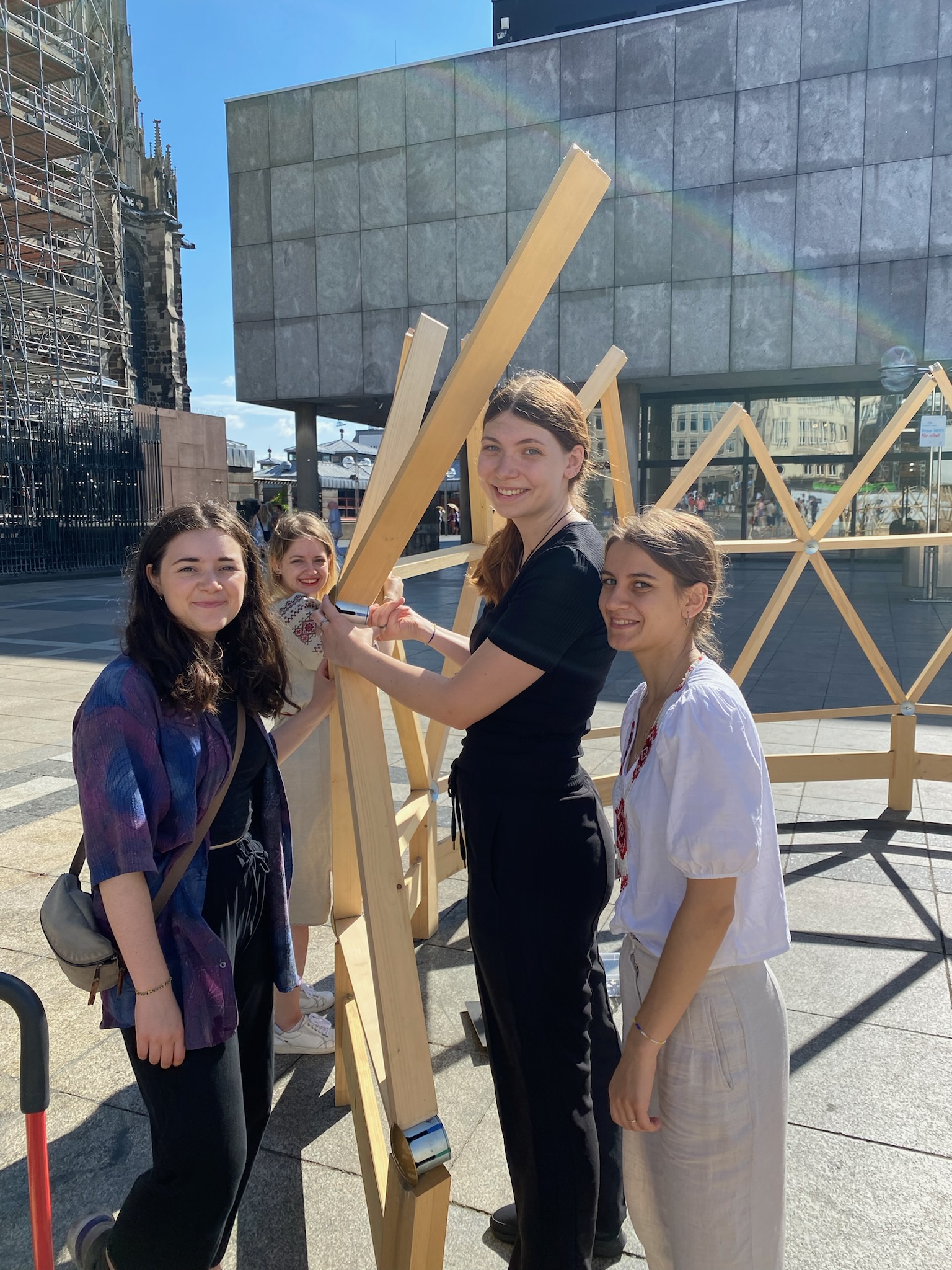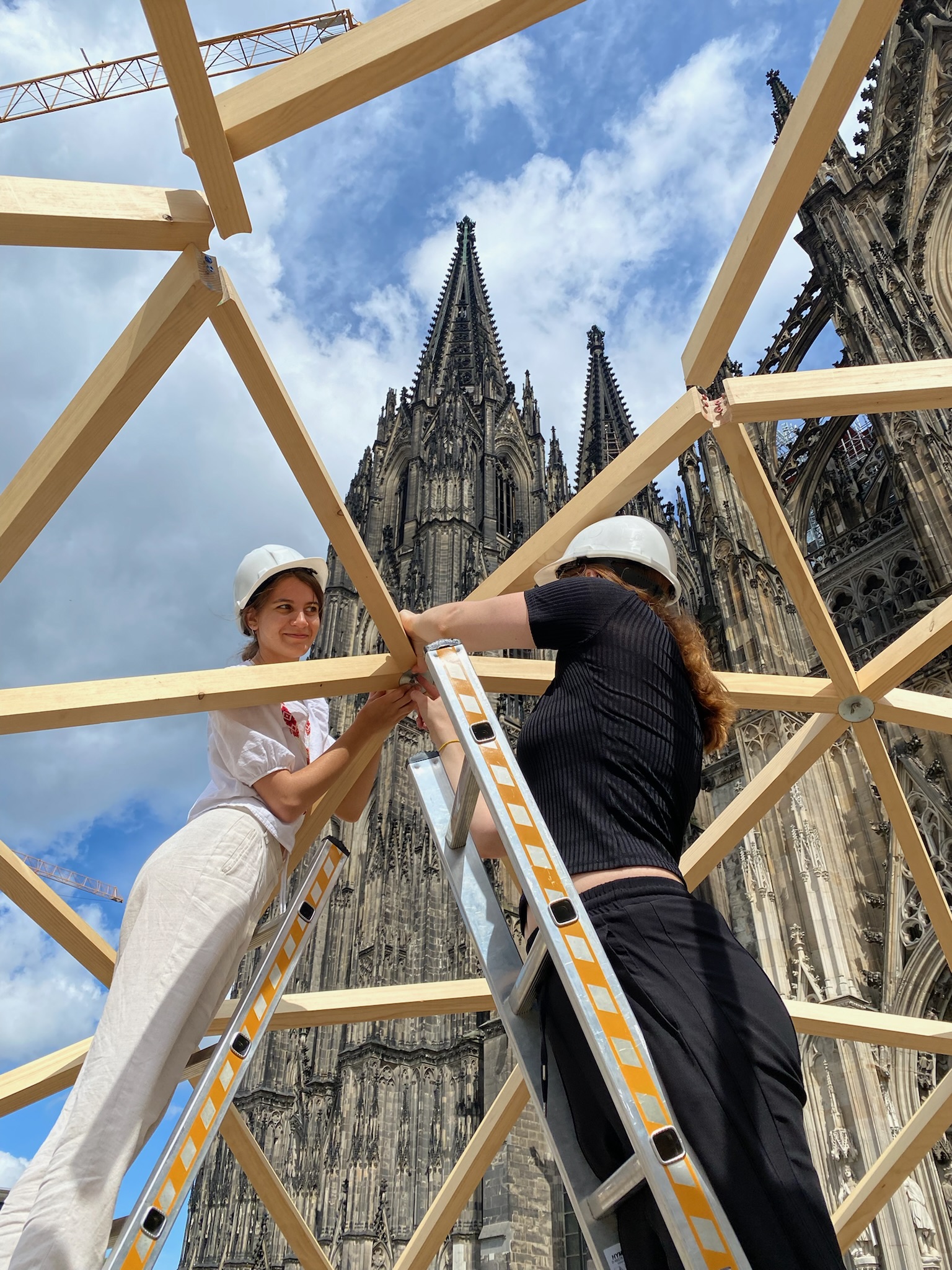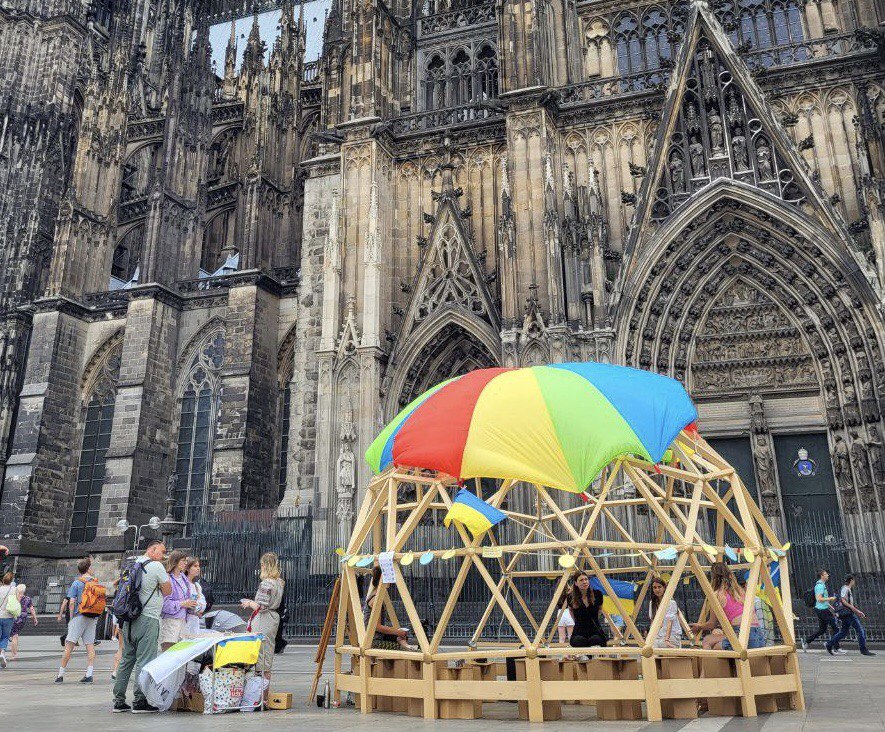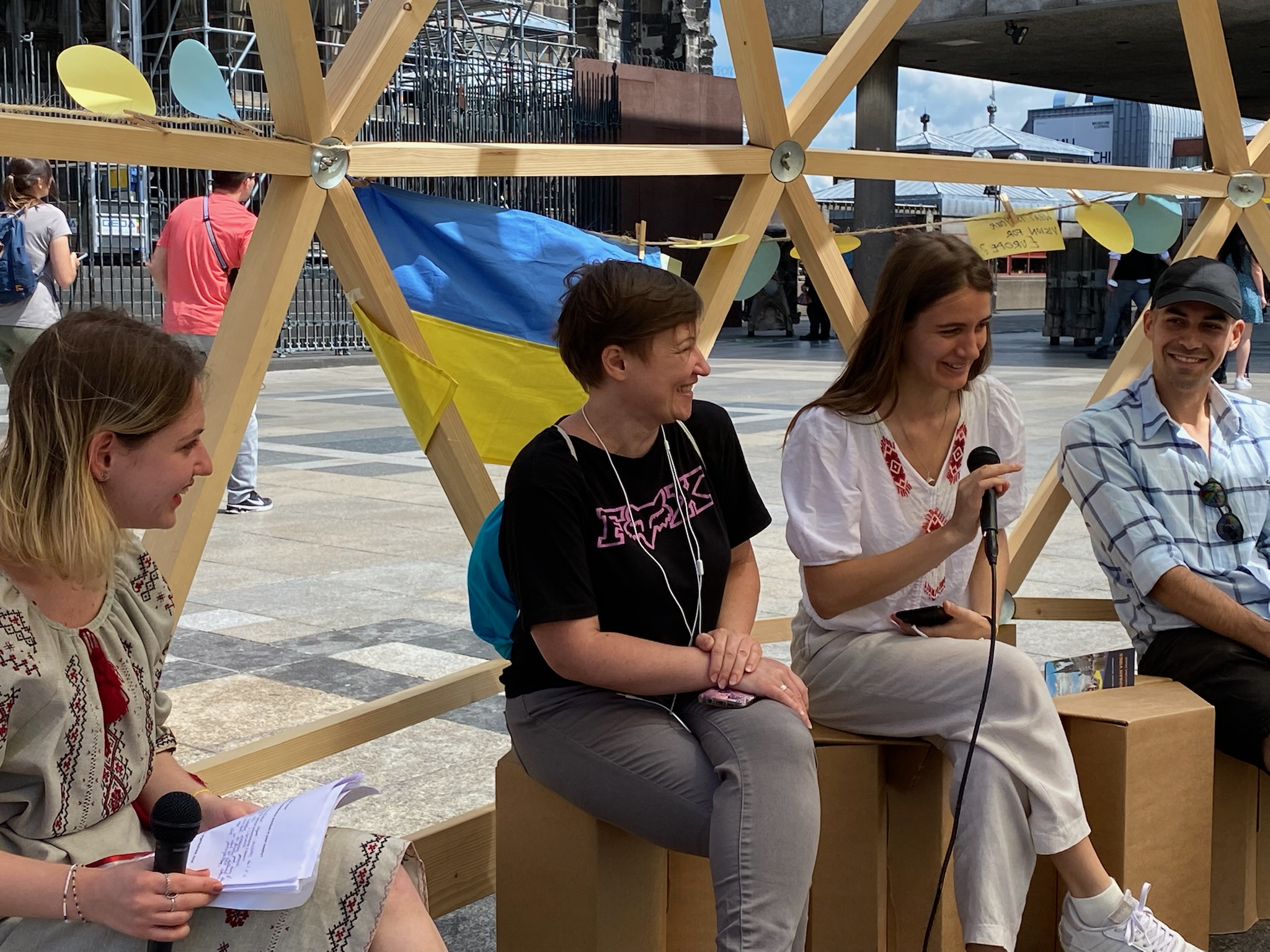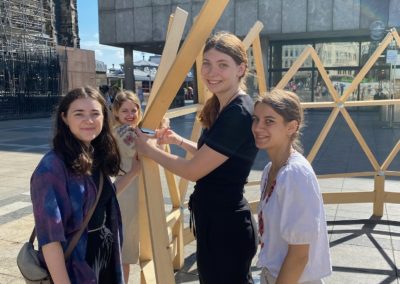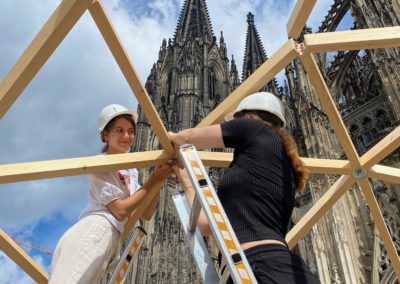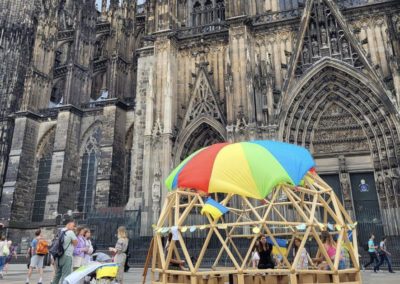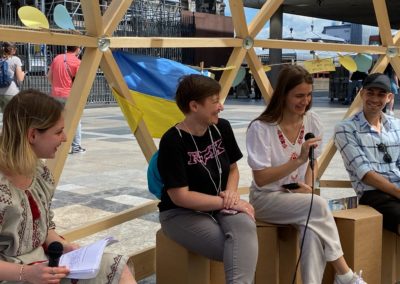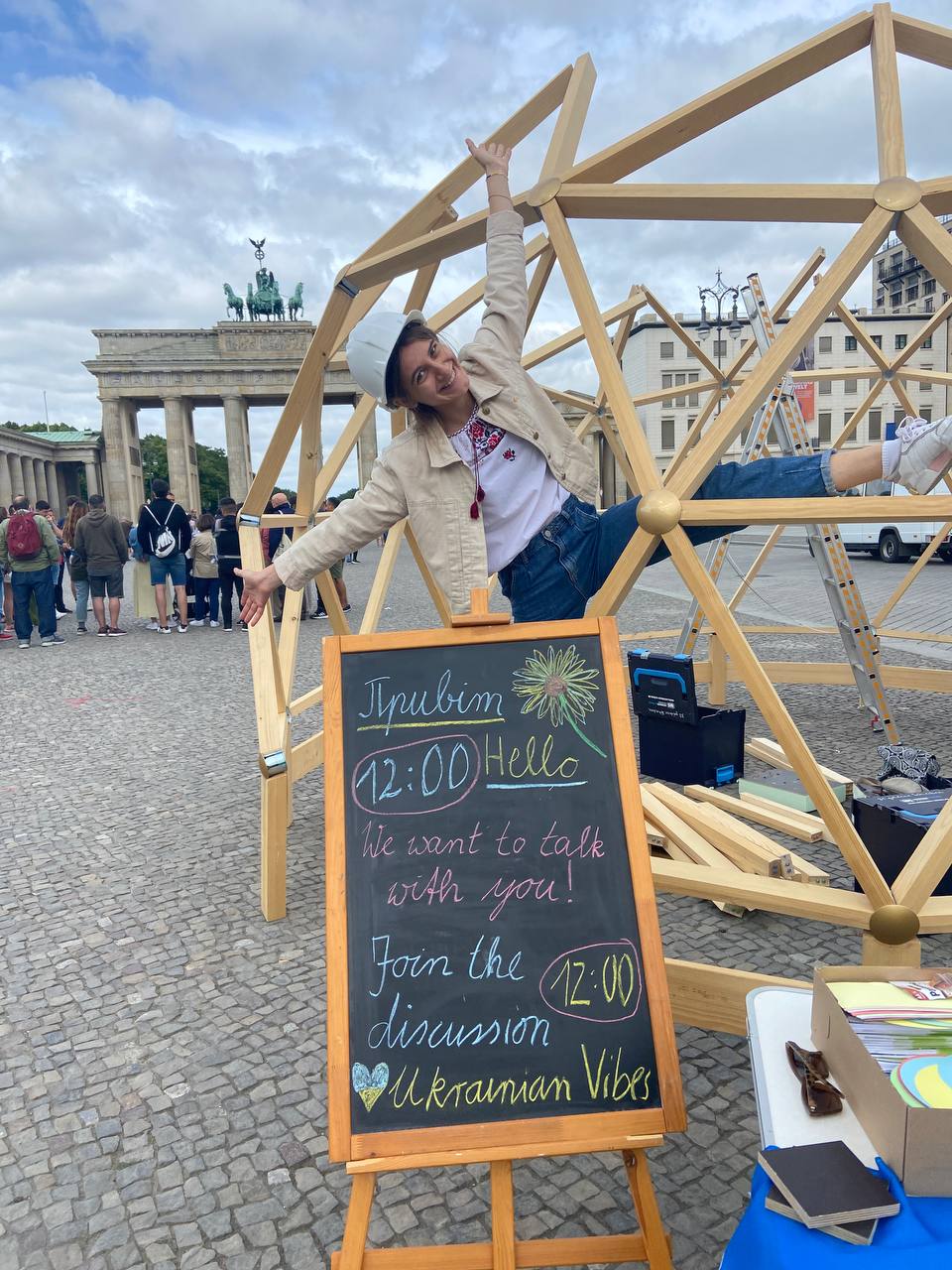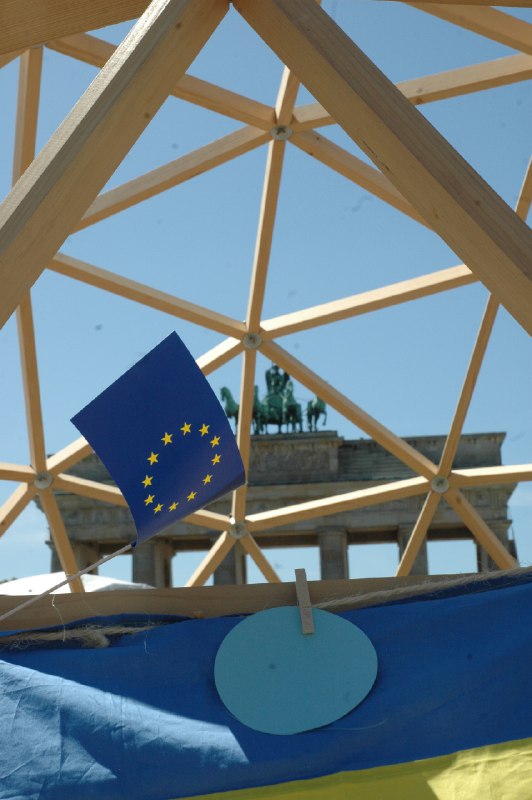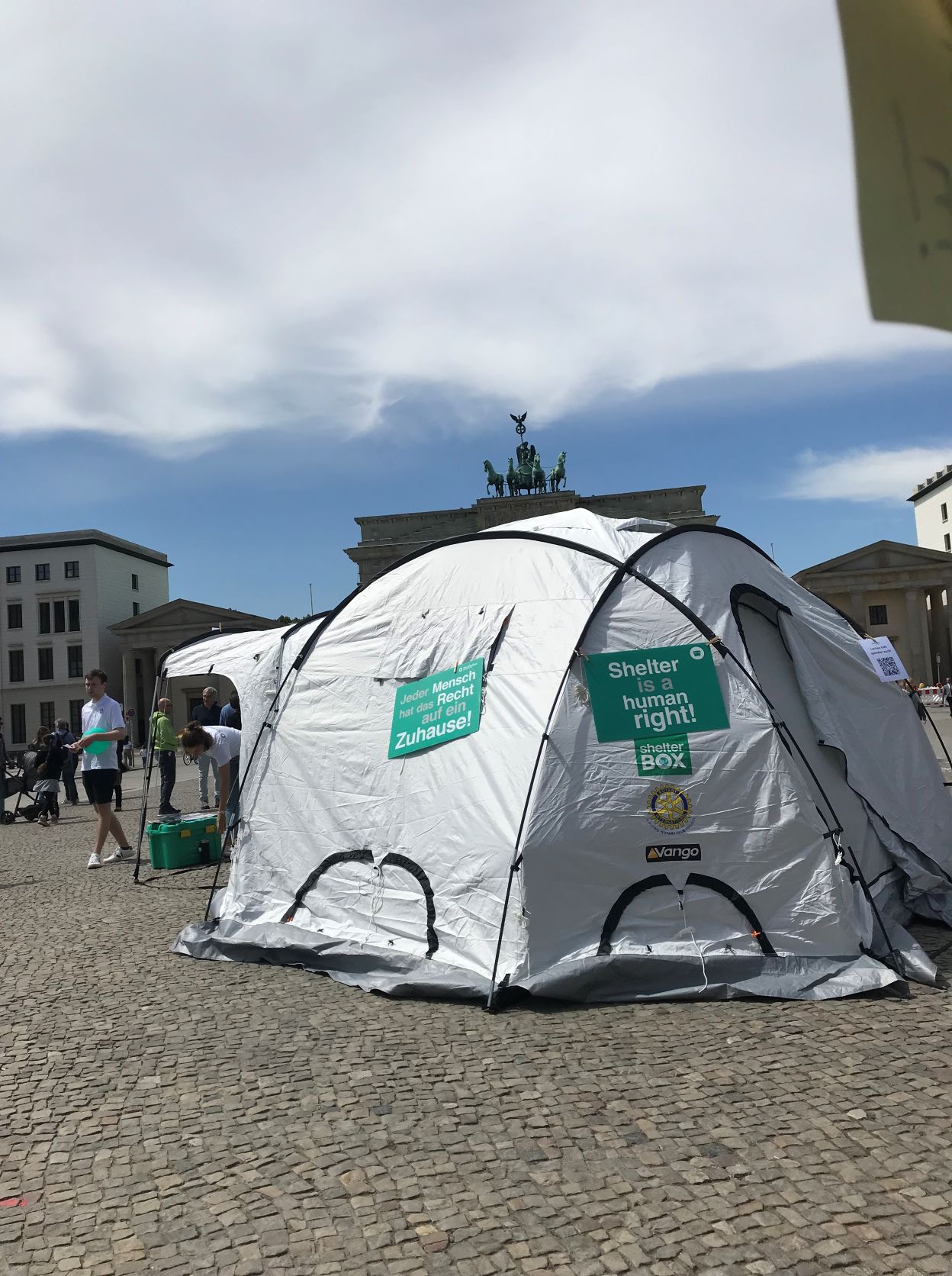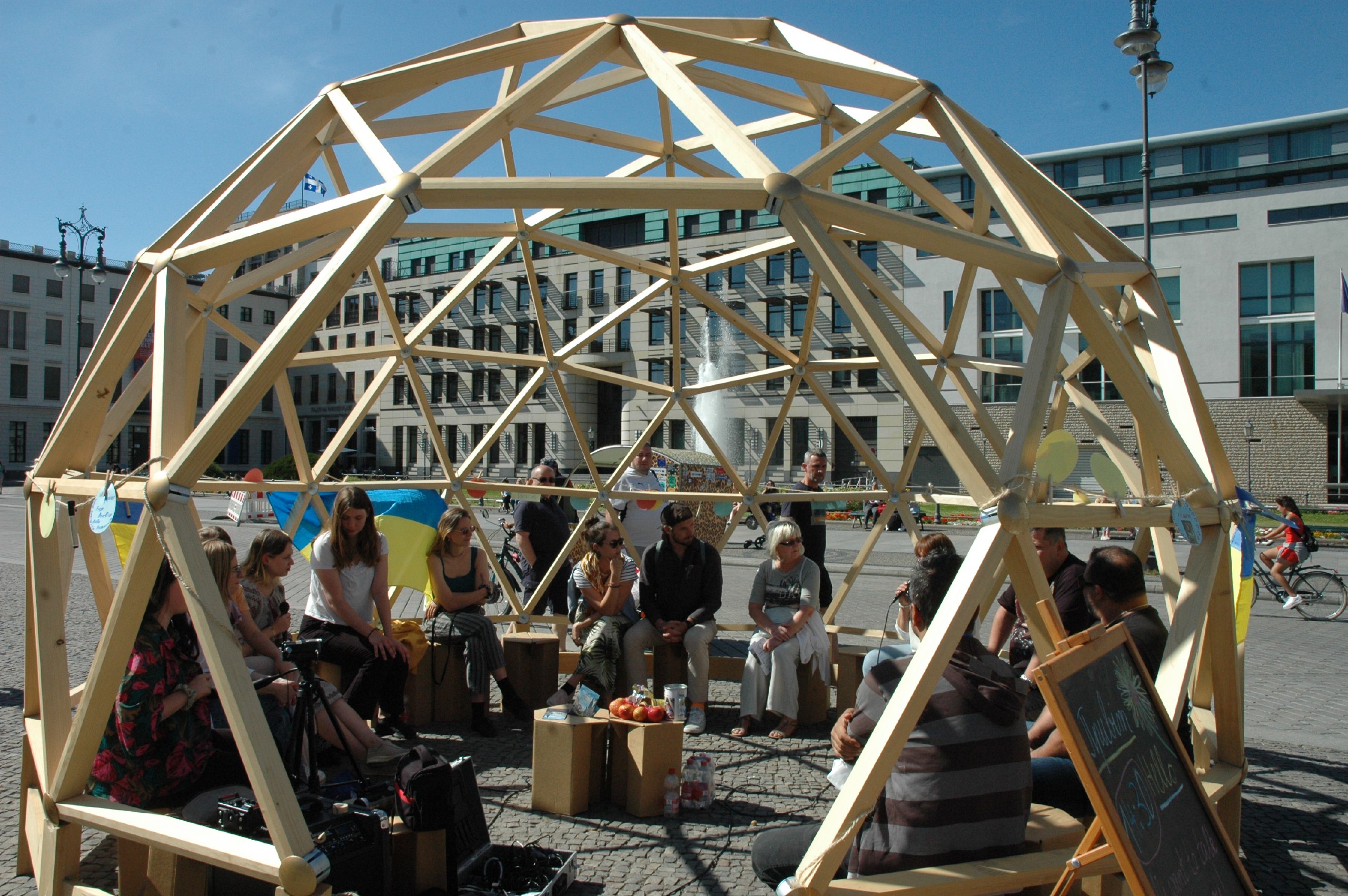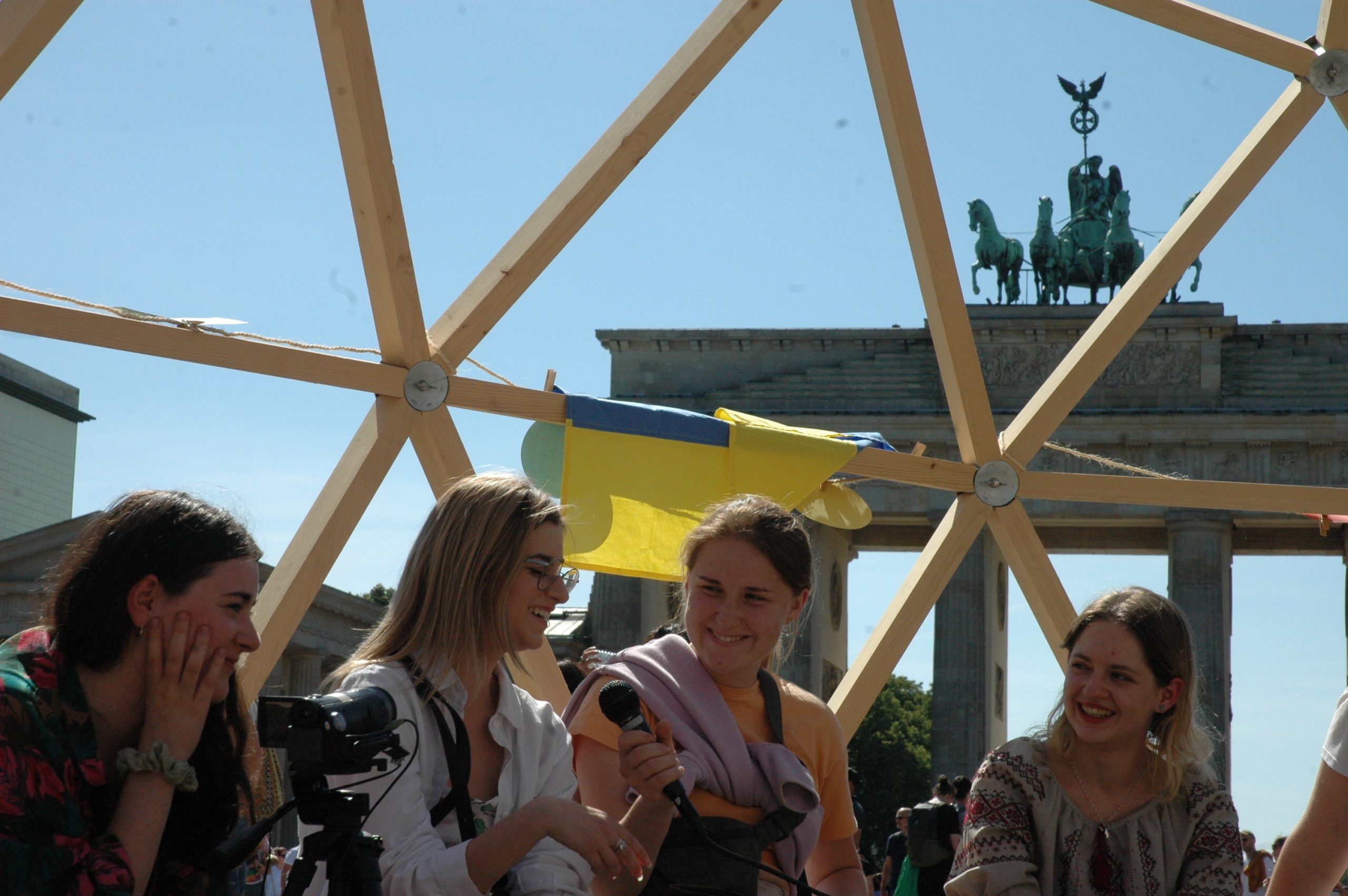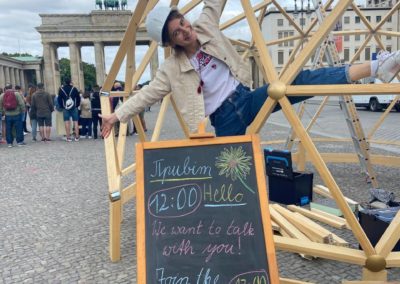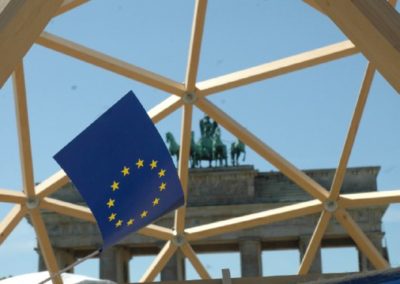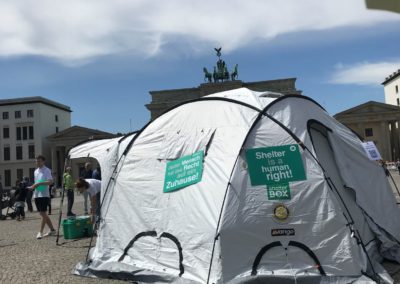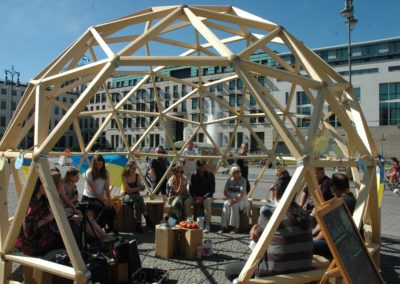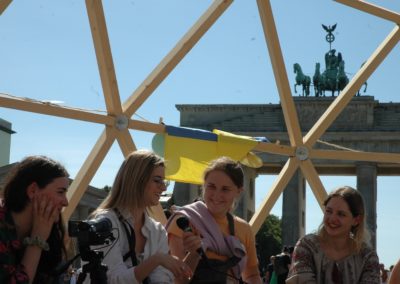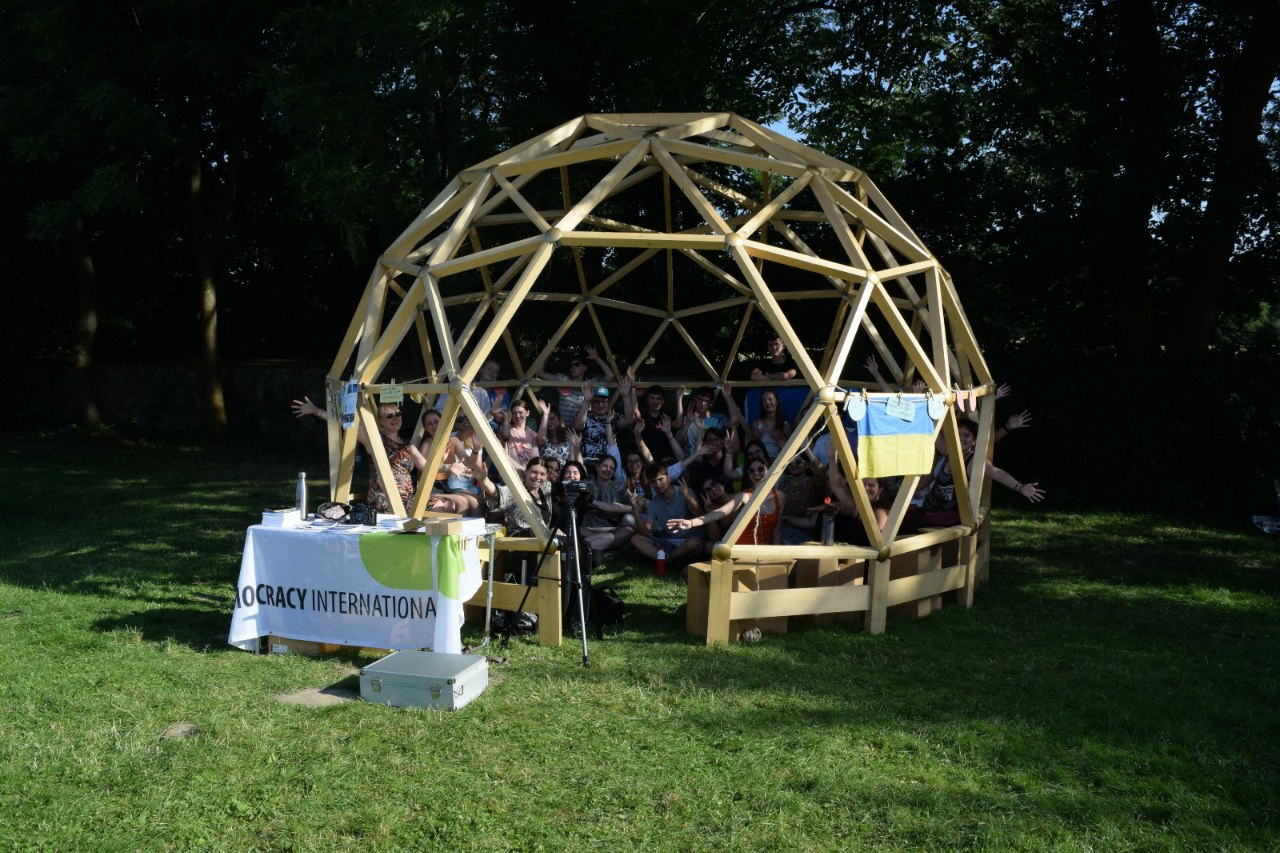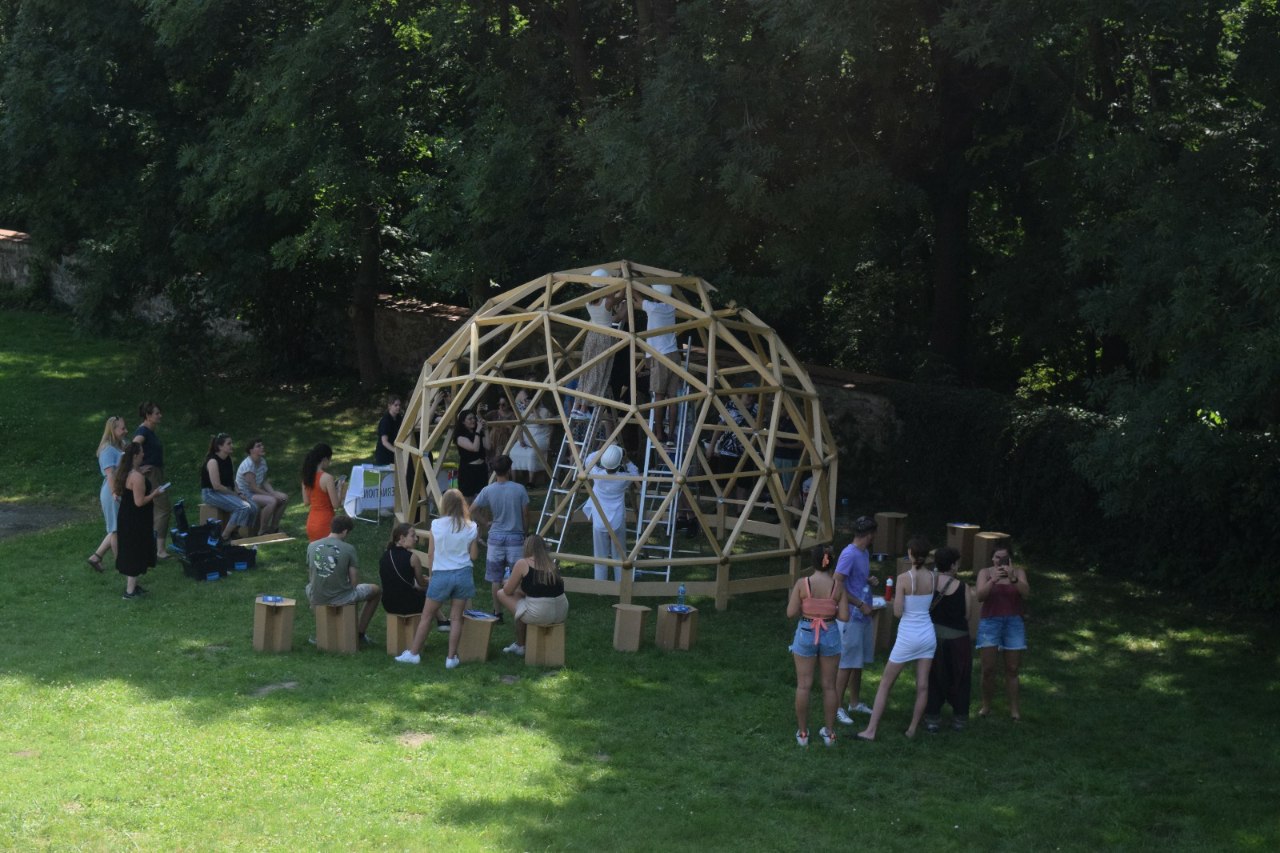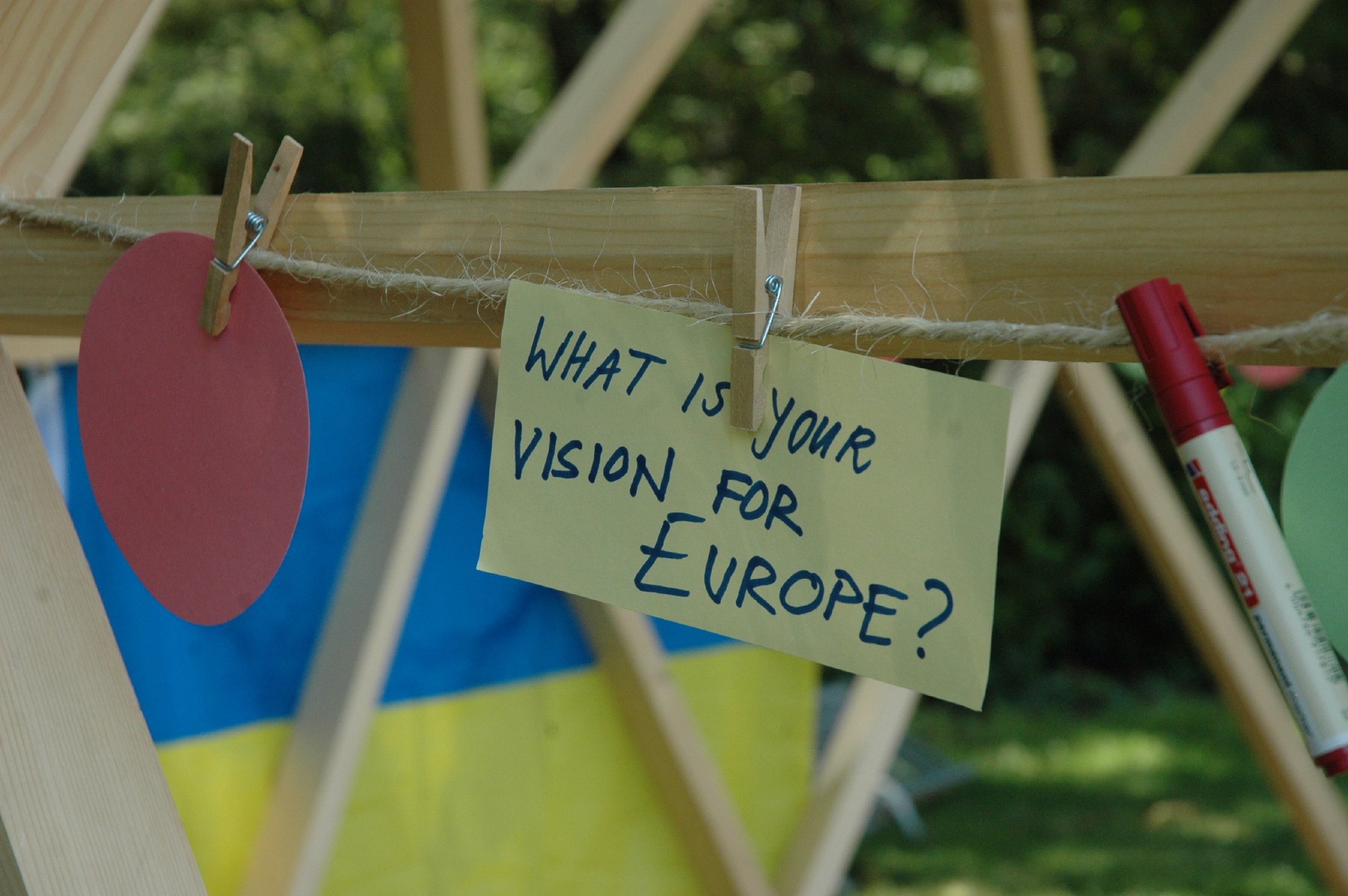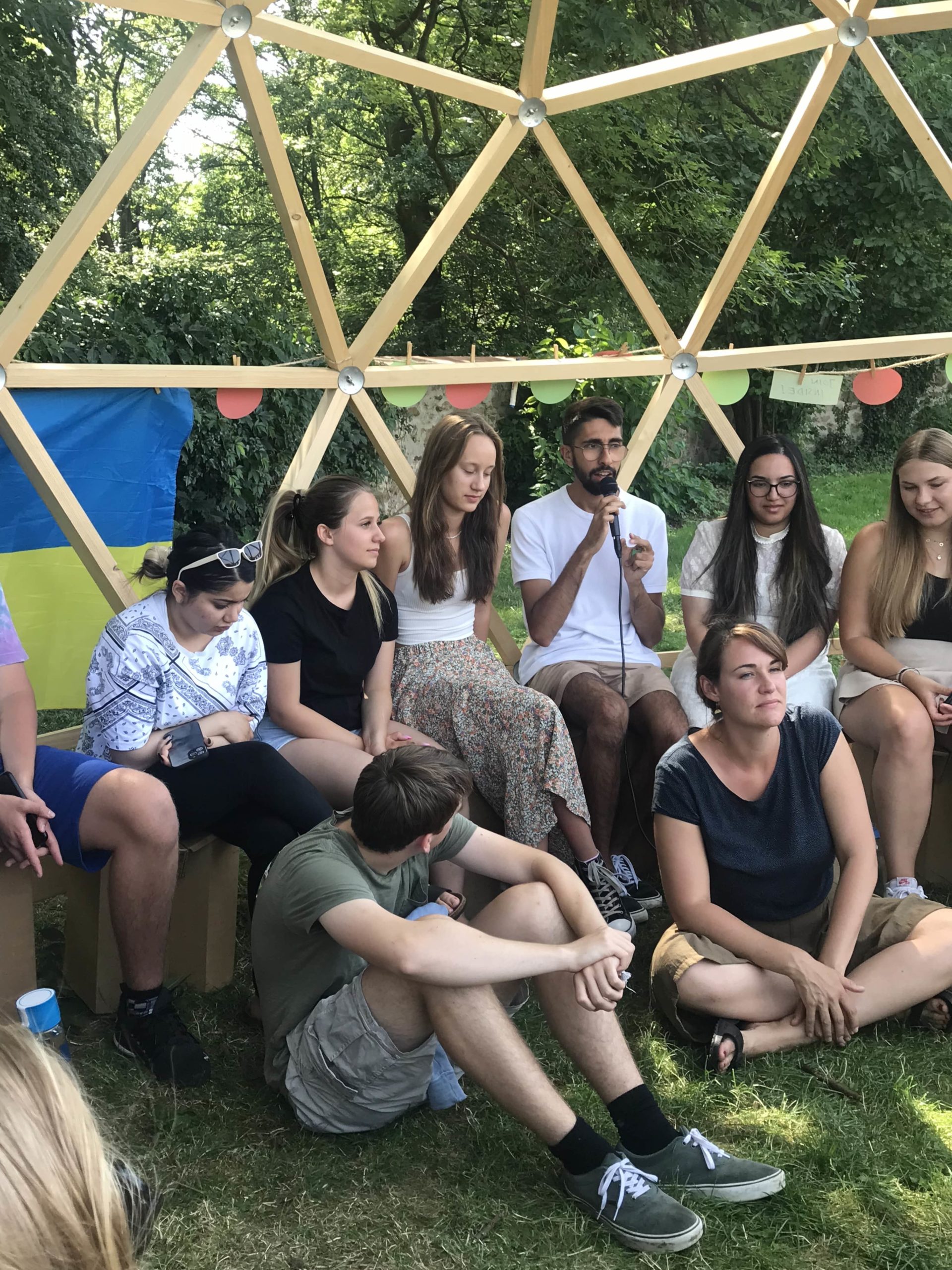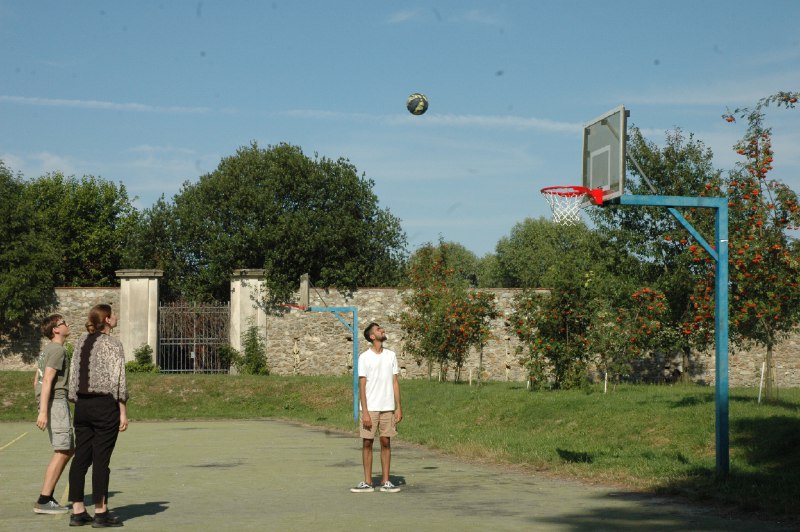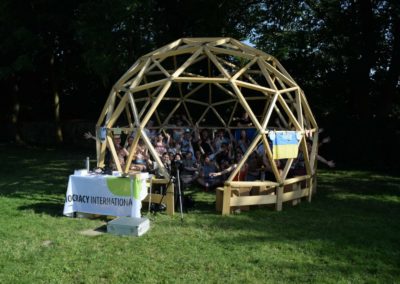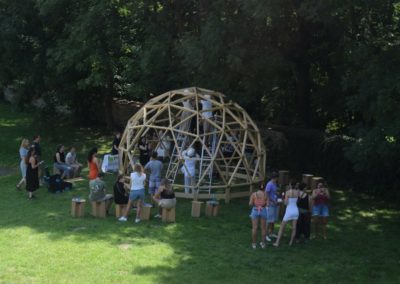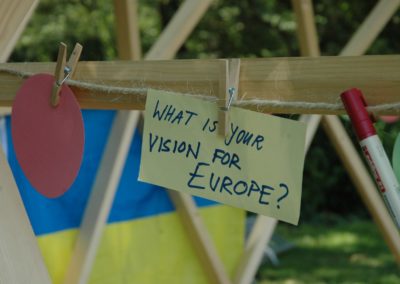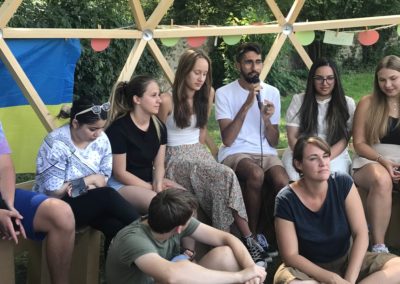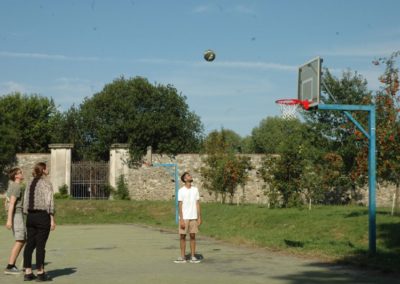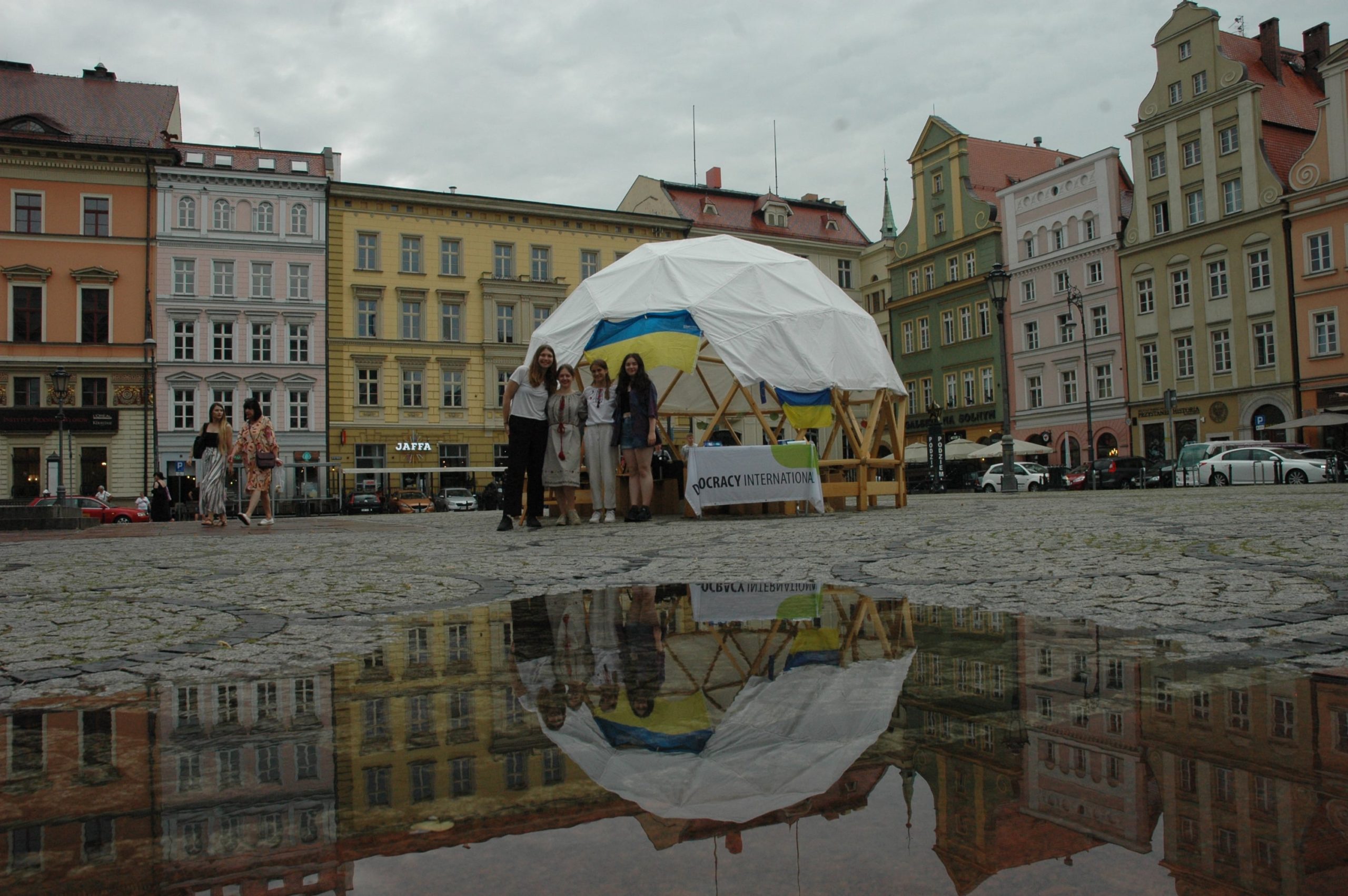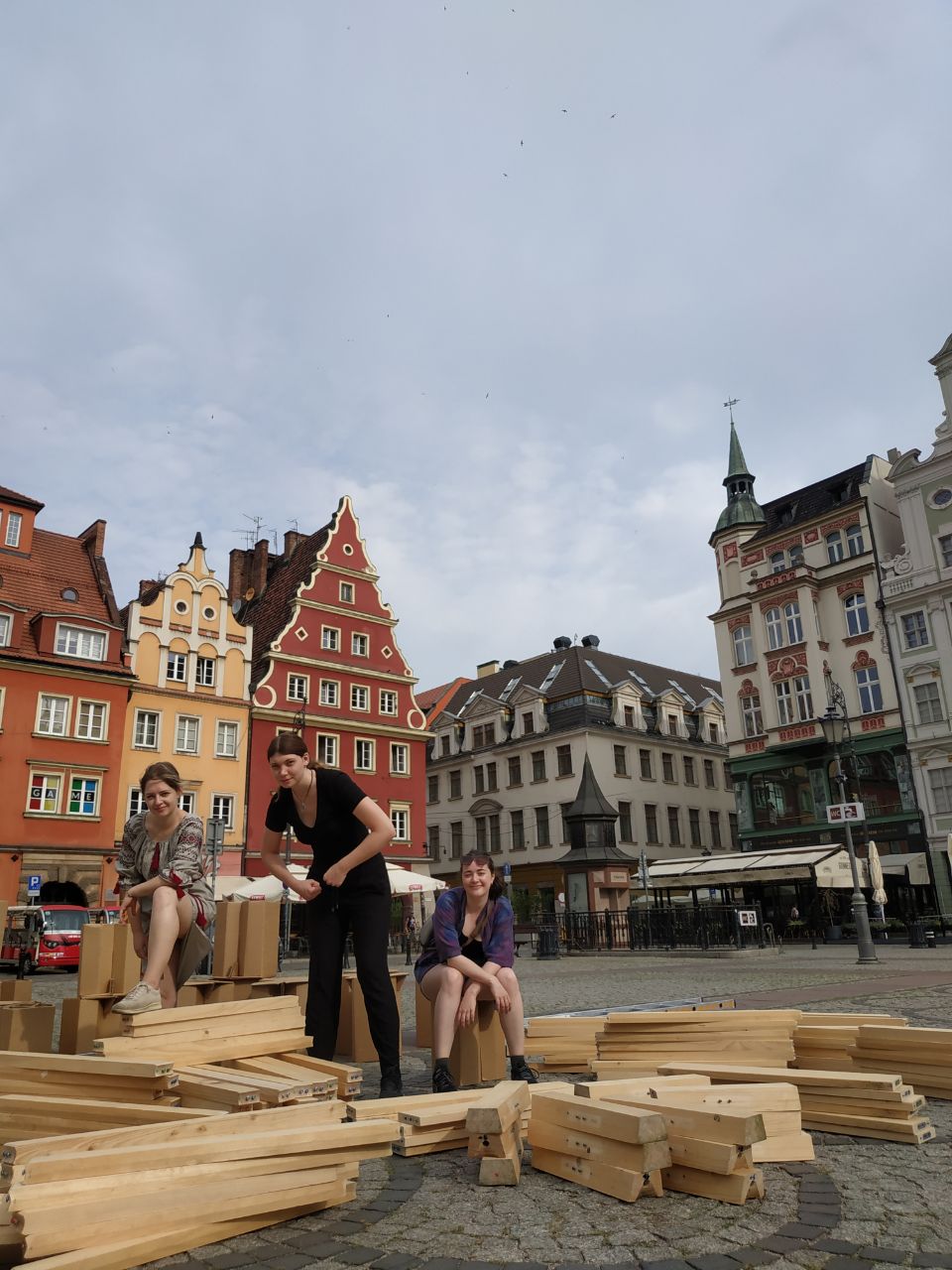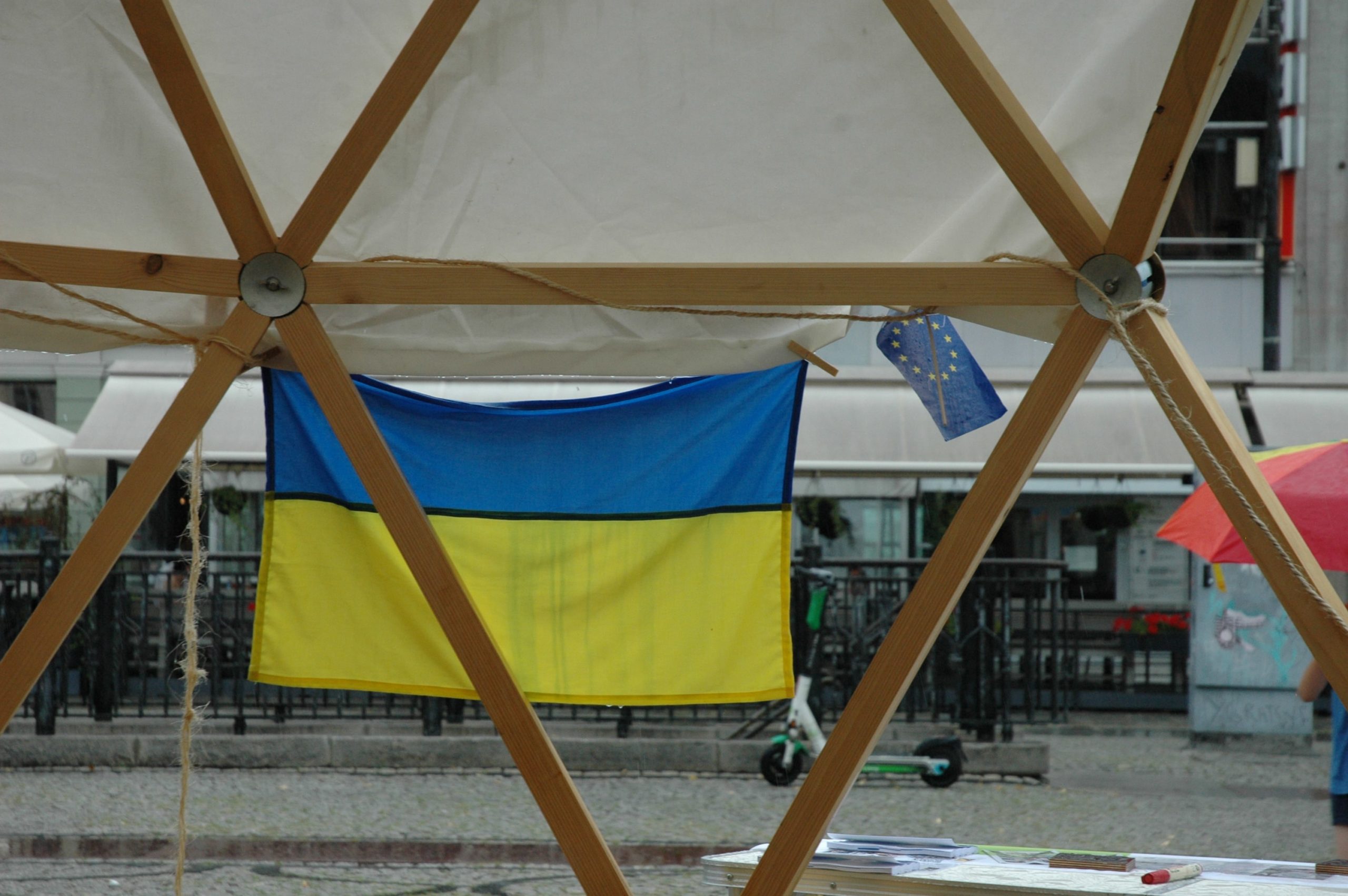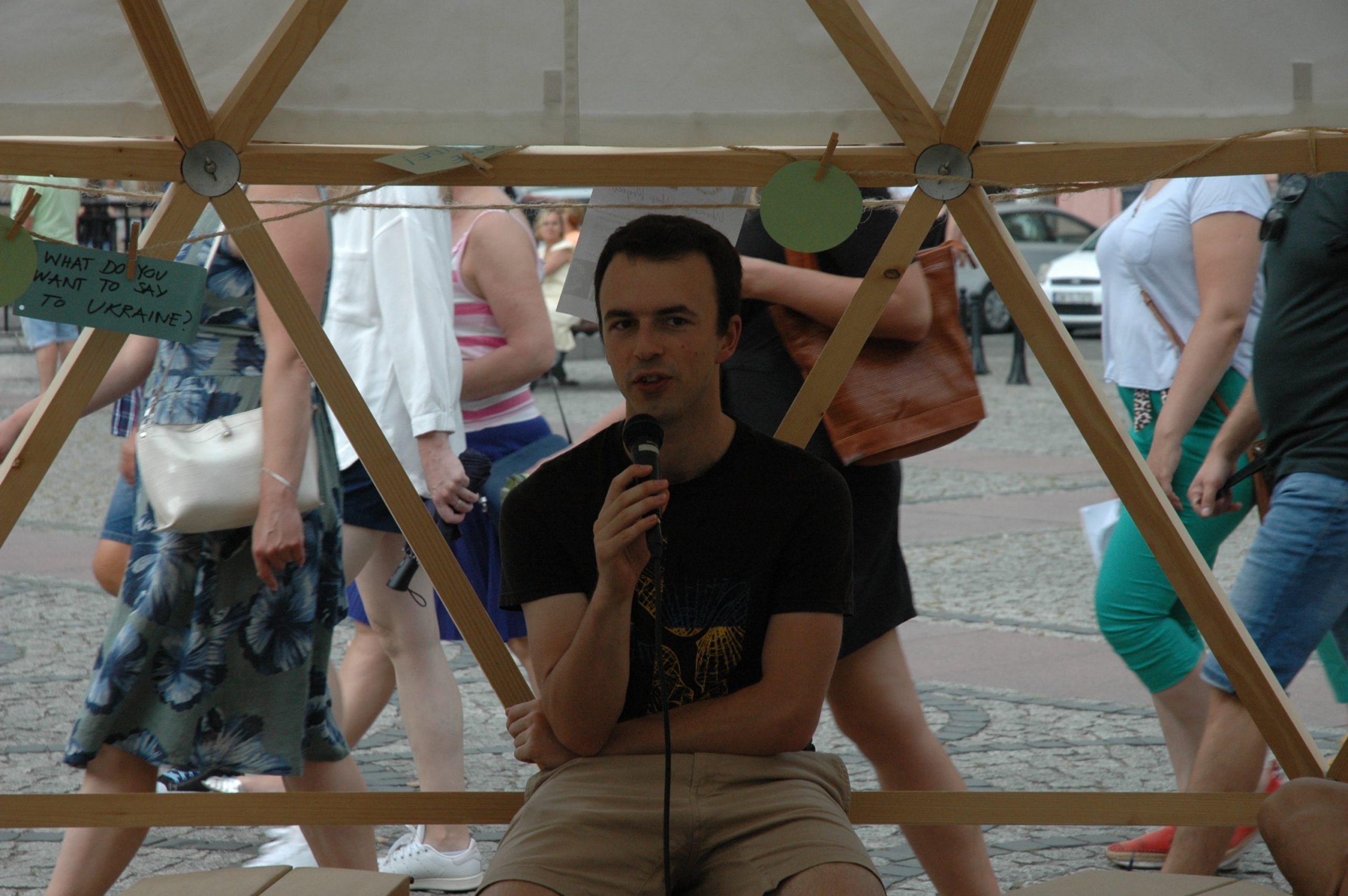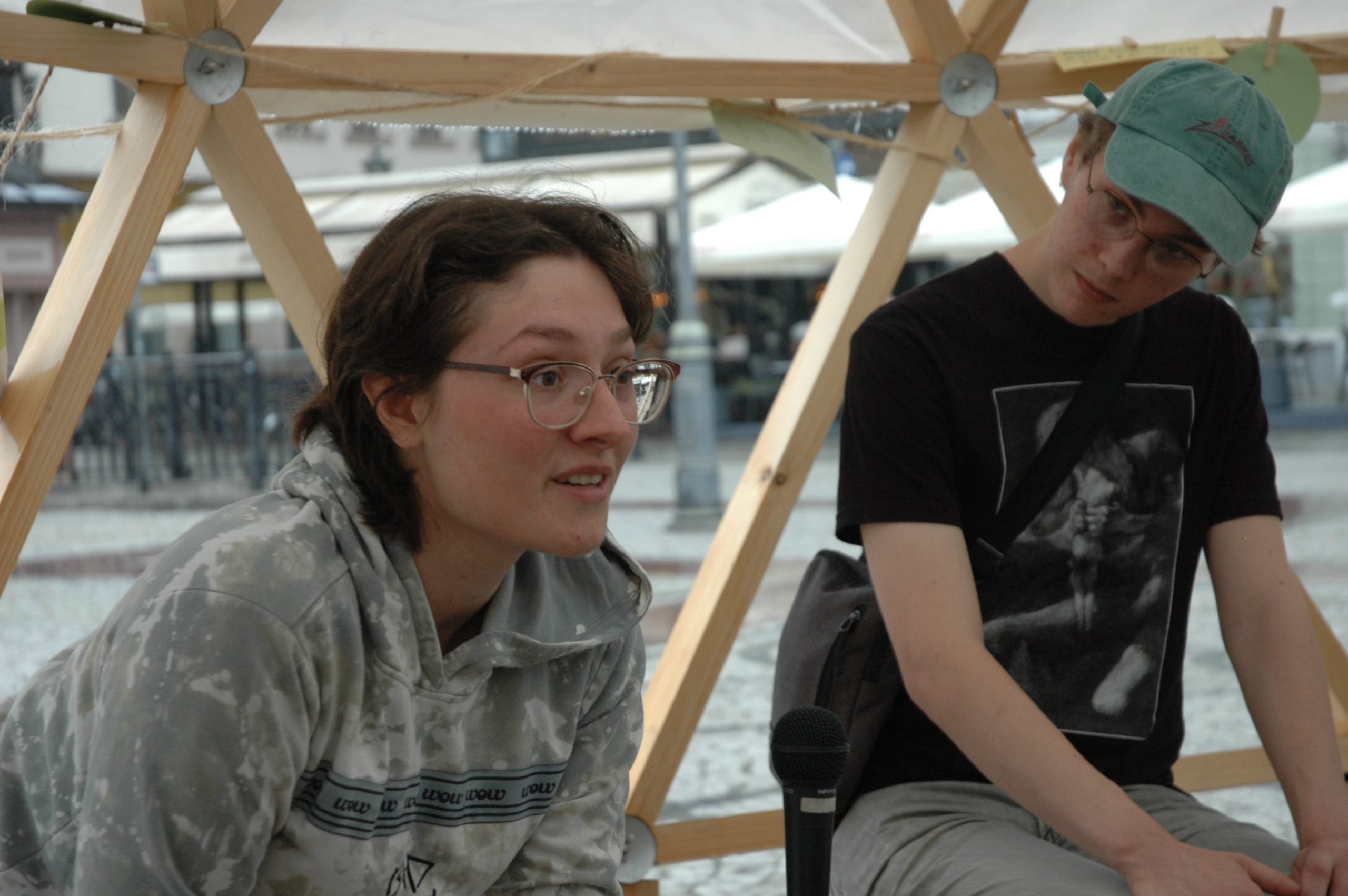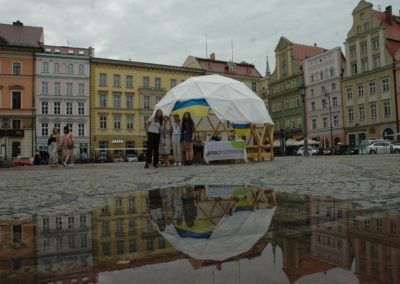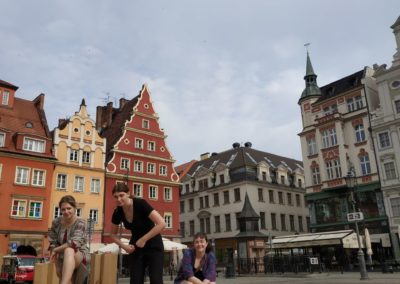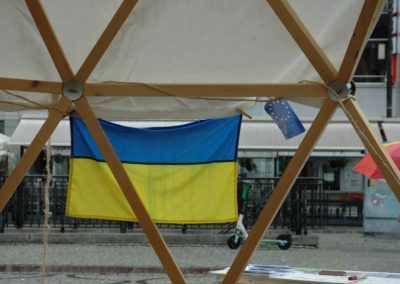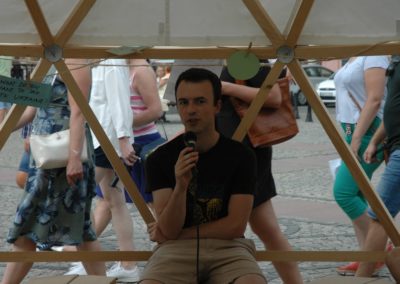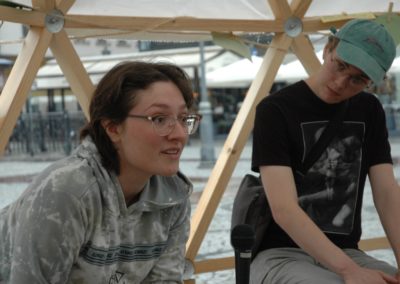

Already one month has passed since the Ukrainian Vibes project’s last in person-discussion under the Europe Dome. The team of Ukrainian Vibes 2022 visited four cities with their discussion events and spoke to people with all kinds of backgrounds. Focussing on the topics of history, human rights, sustainability and civic participation, 60 people joined the discussions under the Dome, coming from 17 different countries. They all joined for quite similar reasons: to support and learn more about Ukraine, as well as to give input for a better future for Europe.
The following collection of 19 pictures shall give a better impression of the tour and the Ukrainian Vibes project:
Although it is a great pity that the Ukrainian Vibes Tour 2022 could not take place in Ukraine, the team is still very happy to be able to go on tour. The four stops all varied from each other and it was exciting to see the direction the event was taking each time. The team was happy to talk to such a multicultural audience and spread the word about Ukraine. Hopefully, the new team will have a similarly unique experience next year.
Written by Katharina Bews.
Translated into Ukrainian by Anna Proskurina and into German by Katharina Bews.


